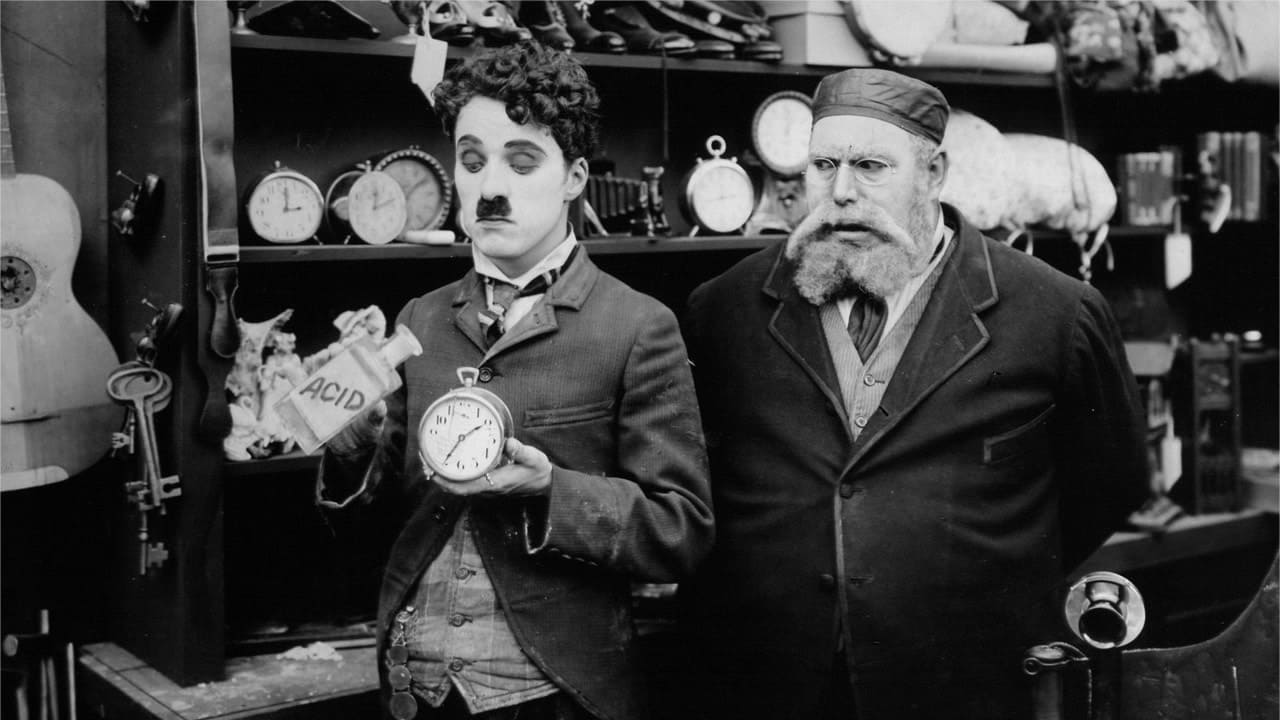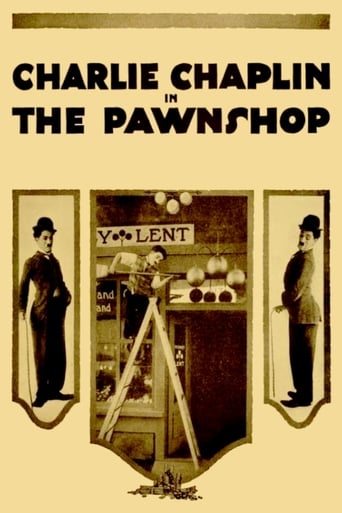

Am a big fan of Charlie Chaplin, have been for over a decade now. Many films and shorts of his are very good to masterpiece, and like many others consider him a comedy genius and one of film's most important and influential directors. From his post-Essanay period after leaving Keystone, 'Pawnshop' is not one of his very best but is one of his best early efforts and among the better short films of his. It shows a noticeable step up in quality though from his Keystone period, where he was still evolving and in the infancy of his long career, from 1914, The Essanay and Mutual periods were something of Chaplin's adolescence period where his style had been found and starting to settle. Something that can be seen in the more than worthwhile 'The Pawnshop'. The story is more discernible than usual and is never dull, but is sometimes a bit too busy and manic and flimsy in others.On the other hand, 'The Pawnshop' looks pretty good, not incredible but it was obvious that Chaplin was taking more time with his work and not churning out countless shorts in the same year of very variable success like he did with Keystone. Appreciate the importance of his Keystone period and there is some good stuff he did there, but the more mature and careful quality seen here and later on is obvious.While not one of his most hilarious or touching, 'The Pawnshop' is still very funny with some clever, entertaining and well-timed slapstick, didn't mind that the pathos wasn't there as it was not the right kind of story. It moves quickly and there is no dullness in sight. The clock scene is one of the most uproariously funny and best scenes of any of Charlie early career output.Chaplin directs more than competently, if not quite cinematic genius standard yet. He also, as usual, gives an amusing and expressive performance and at clear ease with the physicality of the role. The supporting cast acquit themselves well, particularly the charming regular leading lady Edna Purviance.Overall, very enjoyable. 8/10 Bethany Cox
... View MoreI'd gone through a brief Charlie Chaplin period in my mid-teens, and it was all due to "The Pawnshop". I'd stumbled on this in a local museum (COSI) and thought it was hilarious, primarily because this is almost entirely a scuffle between The Tramp and the other guy in the shop (John Rand). He's the worst employee you could ask for, breaking half the store, picking a fight at every turn, harassing clients.But if you're looking for Chaplin's gifts as a comedian, then look no further. This is an impressive showcase of choreography, pantomime and stunts. Not to mention his gift for being a cheeky son-of-a-B.It's just one gag after another, some of them great, all of them coming right at you. Give the man a set and a truckload of props, and watch him go to town.8/10
... View MoreCharlie Chaplin is one of the greatest and all time finest comedian of all ages, as yet. His early silent portrayals like this surreal and sentimental presentation is his excellent work in its living originality.His visage and gestures, his cap and the movement of stick are all lovely trademarks of this legendary comedian. Highest paid actor of his time, he deservedly ranks as an artist who is appropriately knighted with the title of "SIR".Given the present comedy standards (if any) which mostly circumvent on computerized graphics and crazy mannerisms, it seems posterity would have to wait for quite a time to discover some real like of this paradoxically naughty, mischievous, simple, innocent and endearing little tramp.
... View MoreI saw this with a friend at a screening with a live ragtime orchestra (Paragon Ragtime Orchestra?). It was excellent. A good print and good music (not always easy to find in silent movie reissues). Both of us probably never laughed harder; I was actually worried at one point that I was going to hurt myself. While dedicated Buster Keaton fans, we were forced to admit that Chaplin was an equal, at least. Try to find a decent print and appropriate scoring. It should look good and play at normal speed, not fast, which only happens during a poor transfer of these public domain films (I think the old silents were made at 18 frames a second, and playing them on today's 24 fps speeds them up). Awesome to think that one of the earliest pioneers in film has not been surpassed--or even equaled.
... View More